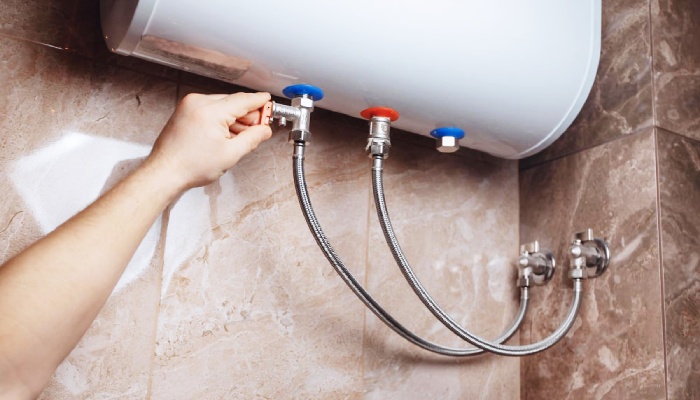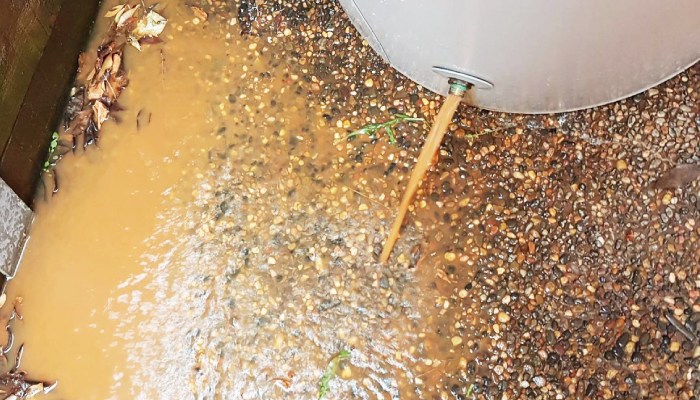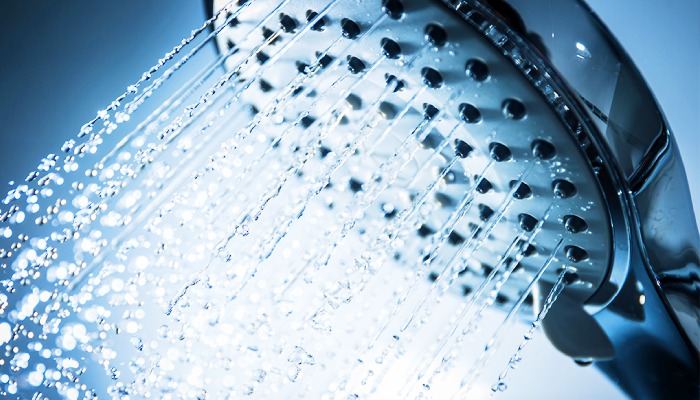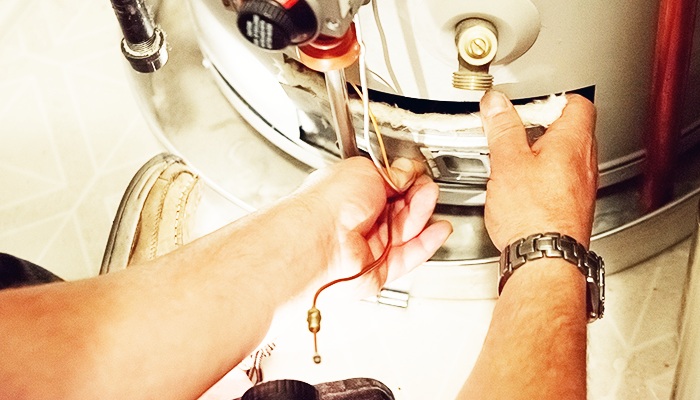
Where the conservation of natural resources has become more crucial than ever, efficient hot water usage stands out as a key area where individuals can make a significant impact. Hot water usage not only affects our water bills but also has a broader impact on energy consumption, water costs and environmental sustainability. From the soothing showers that start our day to the dishwashers and clothes washers that power through our chores, hot water is an integral part of our daily lives. Yet, it’s often overlooked as a vital resource that needs careful management.
This article aims to shed light on the importance of water conservation through the lens of efficient hot water usage. By exploring strategies saving tips that range from fixing leaks in our plumbing systems to making informed choices about the appliances we use, we can uncover opportunities to save water and energy. These practices not only contribute to the sustainability of our planet but also offer the practical benefit of reducing household expenses. Join us as we delve into practical tips and smart strategies to optimize hot water usage at home, ensuring that we preserve this precious resource for future generations while also caring for our immediate environment and budget.

Fix Leaks
One of the simplest yet most effective steps you can take to conserve water and improve the efficiency of your hot water usage involves addressing leaks in your plumbing system, particularly focusing on the hot water system valve. A leaky valve not only leads to the wastage of precious water but also forces your heating system to work harder, increasing both water and energy bills. Regularly checking and maintaining the valves in your hot water system can prevent minor leaks from turning into major issues.
This practice not only ensures the longevity of water saving your system but also contributes significantly to water conservation efforts. Remember, even a small drip from a faulty valve can result in a substantial amount of wasted water over time, making it imperative to fix leaks as soon as they are detected.
Understanding your Hot Water System
Grasping the intricacies of your hot water system is pivotal in optimizing its efficiency and contributing to water conservation efforts. Your home’s hot water system is not just a source of comfort but also a significant energy consumer. The inefficient hot water system encompasses more than just a water heater; it includes pipes, valves, insulation, and potentially a recirculation system designed to provide you with hot water when and where you need it. Understanding the type of hot water system you have be it a conventional storage tank, tankless, solar-powered, or a heat pump water heater can greatly influence your approach to conservation and efficiency.
Each system has its unique set of requirements for maintenance and operation. For instance, tankless systems, while more energy-efficient, may require more frequent maintenance checks for scale buildup. Solar-powered hot water systems also leverage renewable energy and can significantly reduce energy costs, but they also depend on your geographic location and the amount of sunlight your home receives. Additionally, familiarizing yourself with the hot water system valve and learning to adjust the temperature settings can prevent scalding and reduce energy waste.
Regular maintenance and understanding the workings of your hot water system not only extend its lifespan but also enhance its efficiency. This knowledge empowers you to make informed decisions about upgrades, repairs, and adjustments, ultimately leading to water savings and energy conservation. Remember, an efficiently running hot water system is a key contributor to a sustainable household, reducing both your environmental footprint and your utility bills.

Strategies to Preserve Hot Water and Improve Efficiency in Your Home
Preserving hot water and improving its efficiency in your household involves a blend of simple adjustments, regular maintenance, and potentially investing in new technologies. These strategies not only reduce your water and energy consumption but also can significantly lower your utility bills, save money, and contribute to environmental conservation. Here are actionable tips to enhance hot water efficiency:
Insulate Water Pipes and the Heater
Insulating your hot water pipes reduces heat loss as warm water first travels from your heater to your faucets. This means your water heats up faster, saving water and energy. Similarly, insulating your hot water tank helps maintain the water’s temperature, reducing the energy needed to heat the water.
Fix Leaks Promptly
Even a small leak in shower timer can waste a significant amount of hot water over time. Regularly check faucets, showerheads, and the hot water system valve for leaks and repair them immediately to conserve water and energy.
Lower Water Heater Temperature
Setting your water heater to a lower temperature (around 120°F is often recommended) can reduce energy consumption while still providing enough hot water for most needs.
Install Low-Flow Fixtures
Low-flow showerheads and faucets can significantly save energy and reduce water usage without sacrificing performance. These fixtures reduce the flow of water, hence lowering the amount of hot water used and the energy needed to heat it.
Use Energy-Efficient Appliances
When it’s time to replace or upgrade, choose energy-efficient dishwashers and clothes washers. These appliances use less water and have settings that optimize water and energy use without compromising on cleanliness.
Opt for a Tankless Water Heater
Consider upgrading to a tankless water heater, which provides hot water on demand and eliminates the energy loss associated with keeping water heated in a tank.
Regular Maintenance
Schedule regular maintenance for your hot water system to ensure it’s running efficiently. This can include descaling tankless systems, checking for sediment in tanks, the water pressure and ensuring the system’s valves and pipes are in good condition.
Mindful Usage Habits
Simple habits to conserve hot water, like turning off the tap while shaving or brushing teeth, taking shorter showers, and only running dishwashers and washing machines with full loads can greatly reduce your household’s hot water use.
By implementing these strategies, you can preserve hot water and improve its efficiency, leading to savings on utility bills and a lower environmental impact. Each step, from fixing leaks to investing in energy-efficient appliances, contributes to a more sustainable and cost-effective home.

Smart Practices for Efficient Hot Water Usage
Efficient hot water usage is not just about the technology and systems in place; it also significantly depends on our daily habits and the conscious choices we make. Smart practices can enhance the efficiency of how we use hot water, leading to considerable savings in water, energy, and costs, while also benefiting the environment. Here are several smart, water conservation tips with efficient hot water usage practices to incorporate into your routine:
- Timely Maintenance Checks: Regularly inspect your hot water system, including the water heater, pipes, and faucets, for any signs of leakage or damage. A well-maintained system operates more efficiently and has a longer lifespan.
- Adjust Water Heater Thermostat: Many households have their water heater set higher than necessary. Lowering the thermostat to around 120 degrees Fahrenheit can reduce energy consumption while still providing comfortably hot water for most uses.
- Insulate Your Water System: Insulating your hot water pipes and the water heater itself can prevent heat loss, ensuring that less energy is needed to heat the water to the desired temperature.
- Use Low-Flow Fixtures: Installing low-flow showerheads and faucet aerators can significantly reduce hot water use without compromising on comfort, helping to save both water and the energy used to heat it.
- Optimize Appliance Use: Only run your dishwasher and washing machine with full loads. Choose the eco-friendly setting if available, as this uses less hot water and energy.
- Shorten Your Showers: Even reducing your shower time by a few minutes can save a significant amount of hot water over time. Try to keep showers brief and consider turning off the water while soaping up.
- Be Mindful of Tap Water Use: Avoid running hot water unnecessarily, such as when washing hands or cleaning dishes by hand. Use cold water if hot water is not essential for the task.
- Consider Tankless Water Heaters: If it’s time for a replacement, consider switching to a tankless water heater. These heat water on demand and eliminate the energy wasted by heating and re-heating water in a tank.
- Plan Hot Water Use During Off-Peak Hours: Some utilities offer lower rates during off-peak hours. If possible, schedule tasks that use a lot of hot water, such as laundry or dishwashing, during these times to save on energy costs.
- Educate Household Members: Share these tips with everyone in your home. Efficient hot water usage is a team effort, and the more everyone knows about how to conserve, the more significant the savings and environmental benefits will be.
Adopting these smart practices requires minimal effort but can lead to substantial improvements in the efficiency of your hot water usage. Over time, these more water efficient habits can become second nature, contributing to a more sustainable lifestyle and a healthier planet.

Purchase Energy-Efficient Dishwashers and Clothes Washers
For a more sustainable home and reduced utility bills, one of the smartest moves you can make is to invest in energy-efficient dishwashers and clothes washers. These appliances are pivotal in your home’s daily operations, consuming significant amounts of water and energy, particularly in heating water and washing dishes. The advancement in technology has led to the development of models that not only clean effectively but also use substantially less water and energy, making them a crucial component in the eco-friendly household toolkit.
- Look for the Energy Star Label: Appliances with the Energy Star certification meet strict energy efficiency guidelines set by the U.S. Environmental Protection Agency and the U.S. Department of Energy. Energy Star-rated dishwashers and clothes washers use less water and energy than conventional models, which can lead to substantial savings on utility bills and a lower environmental impact over the appliance’s lifetime.
- Consider Water Consumption: When comparing models, pay attention to the water consumption rates. Energy-efficient dishwashers, for example, use less than 4 gallons per cycle, whereas older or less efficient models can use up to 10 gallons. Similarly, efficient clothes washers use less water per load, which means less water needs heating, resulting in energy savings.
- Evaluate Capacity and Efficiency: Larger capacity appliances may seem to use more energy at first glance, but if they reduce the number of loads you need to run, they can be more efficient over time. Look for models that offer variable load settings, allowing you to adjust for smaller loads without sacrificing efficiency.
- Check for Advanced Features: Many modern, energy-efficient models come with features that further reduce water and energy use. For dishwashers, soil sensors adjust the cycle to the level of dirt on the dishes, ensuring that water and energy are not wasted on lightly soiled loads. For clothes washers, features like high spin speeds remove more water in the wash cycle, reducing the time and energy required for drying.
- Calculate Long-Term Savings: While energy-efficient appliances might come with a higher upfront cost, the long-term savings on water and energy bills can be substantial. Consider the total cost of ownership, including purchase price, operational costs, and potential rebates or tax incentives for purchasing energy-efficient models.
- Disposal of Old Appliances: When upgrading to a more efficient model, ensure the proper disposal of your old appliance. Many retailers offer recycling programs, and some utility companies provide incentives for recycling old, inefficient appliances.
Conclusion
In conclusion, adopting water conservation measures and prioritizing efficient hot water usage, including careful water heating practices and the maintenance of hot water systems, are not just environmentally responsible choices but also practical ones that can lead to significant savings on utility bills. By implementing strategies like fixing leaks, understanding your hot water system, investing in energy-efficient appliances, and embracing smart usage practices, individuals can make a substantial impact on both their carbon footprint and water conservation efforts. Each step, no matter how small it may seem, contributes to a larger goal of sustainability and resource conservation. Embracing these changes in our homes not only benefits the environment but also fosters a culture of mindfulness and efficiency for future generations.
